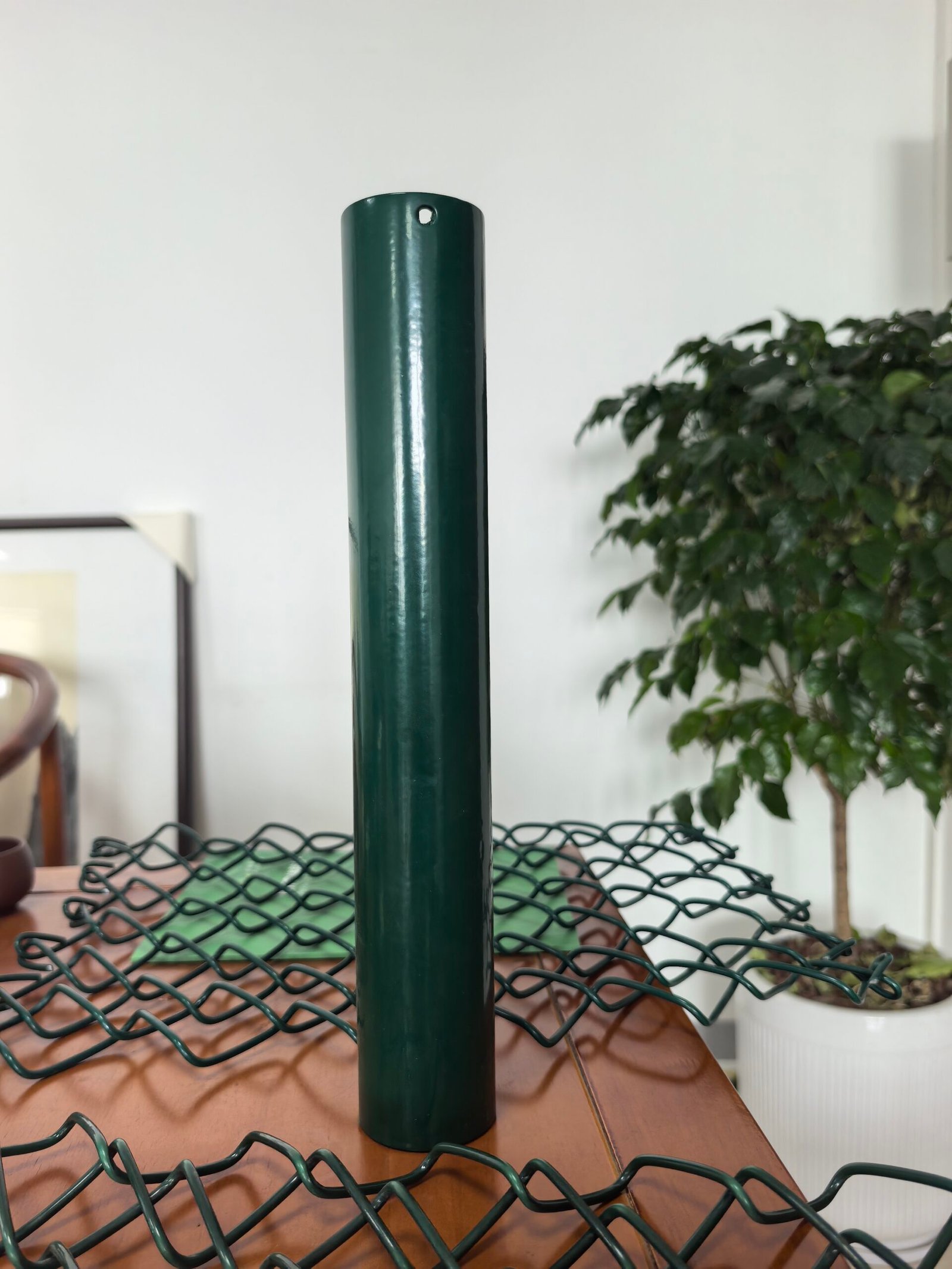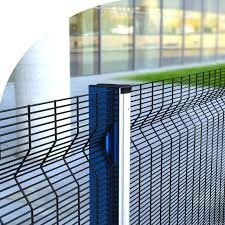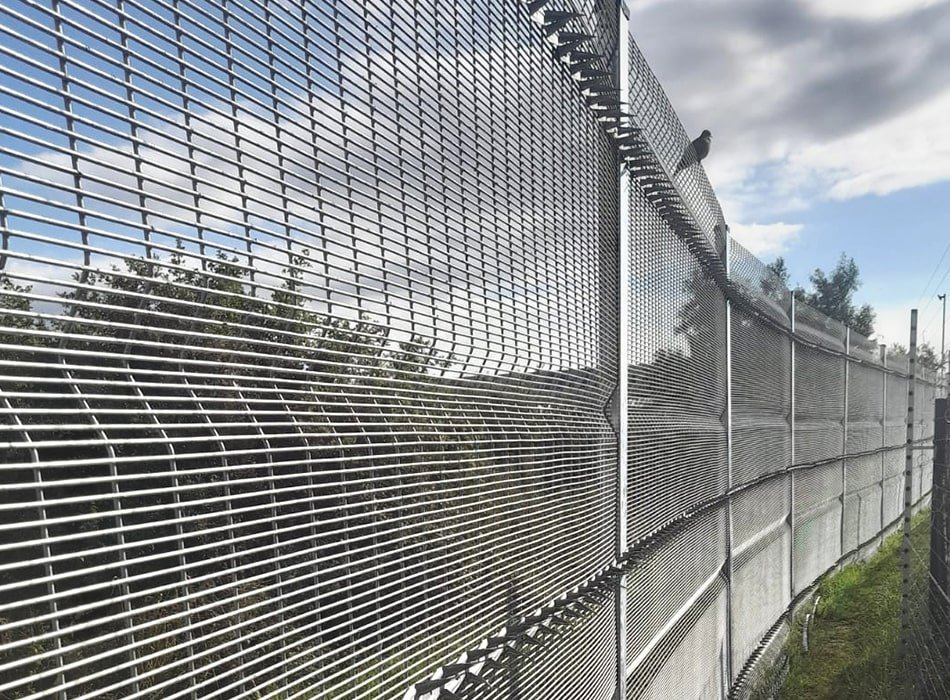What is Palisade Fencing?
Palisade fencing is a type of security fencing characterized by its vertical, spaced steel pales, which are typically fastened to horizontal rails. This design differentiates palisade fencing from other types of fencing as it offers not only a strong physical barrier but also visual openness, creating an aesthetic that blends well with various landscapes. The materials commonly used for palisade fencing include galvanized steel, which provides durability and resistance to corrosion, and coated components that can enhance its visual appeal.
One of the key advantages of palisade fencing is its ability to provide high levels of security. The pointed tops of the pales can deter potential intruders, making it an excellent choice for both residential and commercial properties. Many businesses and institutions utilize palisade fencing as it is particularly effective in safeguarding premises from theft and vandalism. The robust materials and construction ensure that these fences can withstand physical impacts, contributing to their reputation as a formidable barrier.
In addition to security, palisade fencing offers several other benefits. Its design allows for maximum visibility, enabling property owners to monitor their vicinity without obstruction. This can be especially advantageous for homes and businesses that desire security without feeling isolated. Moreover, palisade fences can be customized according to height, spacing of pales, and finish, allowing property owners to tailor them to suit their specific requirements and aesthetic preferences. With a variety of colors and styles available, palisade fencing can complement any architectural design while maintaining its protective qualities.
Overall, palisade fencing represents an ideal balance of strength, appearance, and practicality, making it a favored option in the realm of fencing solutions.
Palisade Fencing Prices: Key Factors to Consider
The cost of palisade fencing can vary significantly based on several key factors. Understanding these elements can help you budget appropriately and make an informed decision about your fencing needs. One of the most critical aspects influencing the price is the height of the fencing. Taller panels generally require more materials and tend to be more expensive. To maintain security and visibility, many property owners opt for heights ranging from 1.2 meters to 2.4 meters.
Another significant factor is the type of materials used. Palisade fences are predominantly made from steel, with options that include galvanized steel, which offers rust resistance and durability, and powder-coated finishes for aesthetic appeal. The choice of material affects not only the overall longevity of the fence but also its maintenance costs over time. Premium materials may come at a higher upfront cost but can lead to long-term savings through reduced maintenance.
Land conditions play an essential role in the pricing of palisade fencing as well. Uneven or rocky terrain may necessitate additional work for installation, leading to increased labor costs. Conversely, flat, stable land often allows for quicker installation, which can help keep costs down. Additionally, the complexity of the installation process can contribute to the final price. If a custom design is required or if there are significant obstacles to navigate, such as existing structures or landscaping, these factors can further increase expenditures.
On average, palisade fencing can range from R1,500 to R3,500 per linear meter, depending on the factors mentioned above. Leading suppliers such as Cashbuild provide a variety of options to fit different budgets, making it essential to evaluate your specific needs against available market prices. Proper research and consideration of these key factors will help ensure that you receive the best value for your investment in palisade fencing.
Concrete vs. Steel Palisade Fencing: A Comparison
When considering palisade fencing, two prominent materials often come to mind: concrete and steel. Each of these materials presents unique characteristics that may suit various preferences or requirements, particularly regarding durability, maintenance, cost, and aesthetic value.
Concrete palisade fencing is well-known for its strength and longevity. Its ability to withstand harsh weather conditions makes it ideal for regions with extreme climates. Concrete does not rust or corrode, thereby minimizing the need for frequent repairs or replacements. Furthermore, concrete fences are often reinforced, providing added durability against impacts or potential vandalism. On the downside, installation can be labor-intensive and time-consuming, which may lead to higher initial costs. Additionally, its aesthetic appeal is sometimes considered less versatile than that of steel, as concrete tends to present a more utilitarian appearance.
Steel palisade fencing, on the other hand, is favored for its modern aesthetic and variety of design options, which can enhance the overall appearance of a property. Steel is exceptionally strong and can be manufactured with various finishes, including powder coating, which can help prevent corrosion. This fencing type is also relatively easy to install, making it a time-efficient choice. However, steel may require periodic maintenance to prevent rust, particularly in humid environments. While the upfront costs for steel palisade fencing may be lower than for concrete, the long-term maintenance expenses could outweigh initial savings if regular care is neglected.
Ultimately, the choice between concrete and steel palisade fencing hinges on specific preferences and environmental factors. Evaluating the advantages and disadvantages of each material will lead to a more informed decision that aligns with both functional needs and aesthetic desires.
Customizing Your Palisade Fencing: How China Fence Maker Can Help
Palisade fencing represents a significant investment in security and aesthetics for residential, commercial, and industrial properties. One of the key advantages of choosing palisade fencing is the ability to customize the design to meet specific project requirements. Companies like China Fence Maker offer a range of customization options that can enhance the functionality and appearance of your fencing solution, ensuring it aligns perfectly with the site’s needs and your personal preference.
The design process typically begins with a comprehensive consultation, where clients can discuss their vision and requirements. China Fence Maker encourages collaboration, allowing customers to specify dimensions, style, and color choices. Various design elements can be tailored, including the thickness of the palisade rails, the spacing between panels, and the overall height of the fence. This flexibility not only enhances the visual appeal of the fencing but also ensures that it provides the desired level of security and privacy.
Additionally, opting for custom designs over standard offerings presents several benefits. Customized palisade fencing can incorporate unique features such as integrated security options, gates designed to match the aesthetic of the fence, and specialized finishes for enhanced durability against weather conditions. These features not only improve the fence’s visual interest but also elevate its performance and lifespan. Choosing a tailored solution can ultimately result in a more effective fence that meets the specific needs of the property.
Moreover, China Fence Maker utilizes high-quality materials and advanced manufacturing techniques, ensuring that custom palisade fencing is both affordable and durable. By investing in customized fencing, property owners can achieve a security fence that is not only functional but also an appealing addition to their premises.








